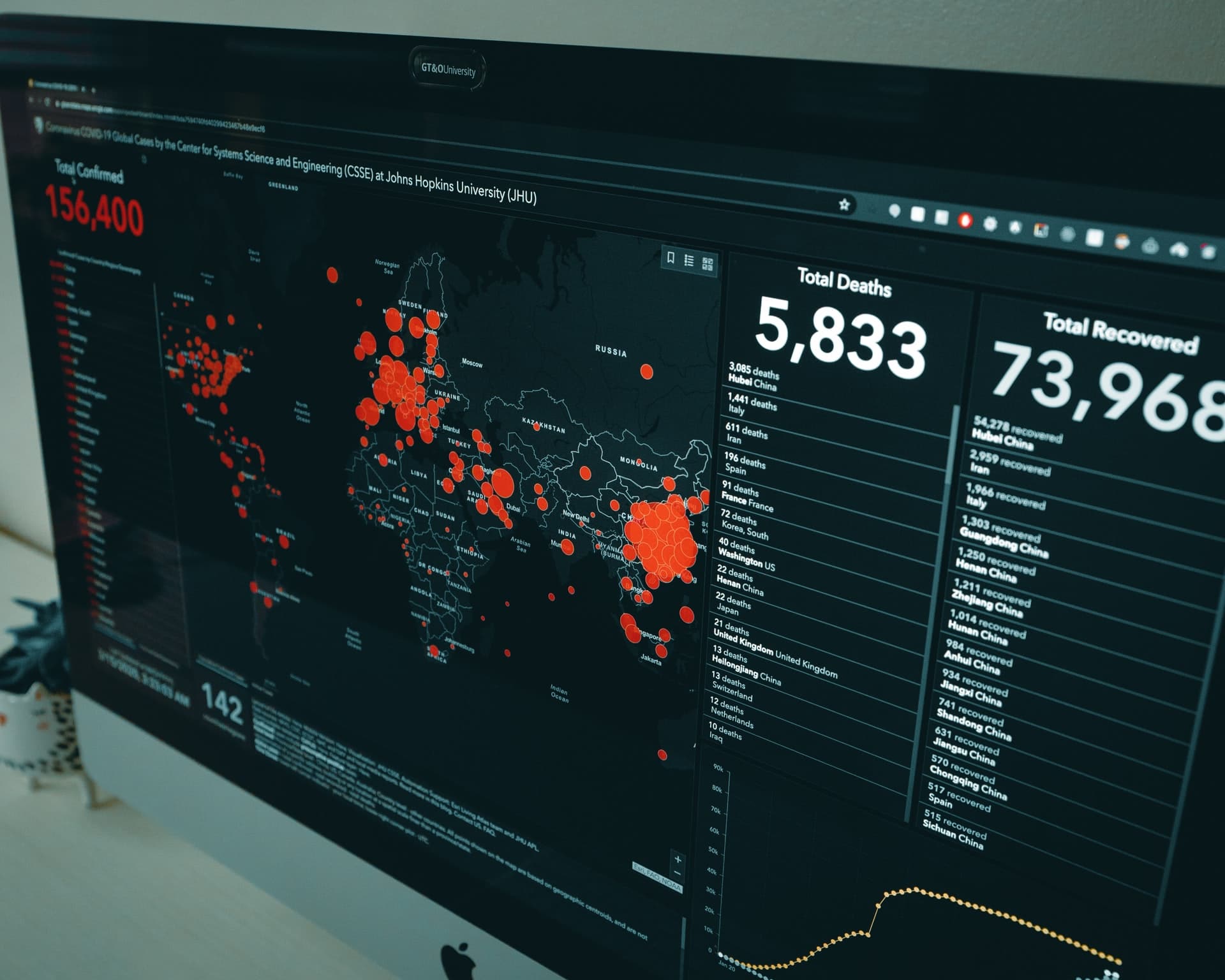National Defence in the Coronavirus Era Germ Warfare and Digital Security

There is much we still don’t know about coronavirus. But as the pandemic has spread around the world, one thing has become clear: the huge variance in readiness levels. Some of the most advanced economies in the world, the UK and US notable among them, have been woefully ill-prepared for a virus whose death toll now exceeds 29,000 in the former and 70,000 in the latter. Almost 30% of all deaths so far from Covid-19 have been in these two countries alone.
It is too early to draw definitive conclusions about the virus. But it is not too early to be assessing our readiness for both this crisis and others of similar magnitude that may lie ahead. Among many other things, this pandemic has been a wake-up call about disaster planning for some – though clearly not all – major nations. We cannot afford to be caught off guard again so acutely.
A spending paradigm from the twentieth century
In the first instance, the focus has fallen on health services. With an apparent global shortage of key medical equipment and a race to construct emergency hospital facilities, there can be no doubt that there are gaping holes in health infrastructure and supply chains. In our global world, as networks and travel time shrink, complexity has grown. The global paradigm is a fragile one. For healthcare, it means long and convoluted supply chains, efficient but inflexible centralised services (how easy is it to add hospital beds?), and, in many democracies, a monopolised, centralised funding system.
It is admirable how, in the face of this unprecedented curveball, private manufacturers have stepped in to re-tool their production lines and produce emergency medical equipment, supporting healthcare systems with the necessary capacity for this time of crisis. This should put the spotlight on how effectively the UK and US governments are funding healthcare. It may be no coincidence that both are among the biggest spenders on defence in the world. The US budget is famously larger than those of the next eleven combined, while only five countries spend more on their military than the UK.
Research suggests that such spending does not happen in a vacuum, but can actively detract from other critical areas such as health: the ‘crowding out’ theory. One study, looking at data from 197 countries, has found that a 1% increase in defence expenditure on average leads to a 0.62% reduction in spending on health. To take just one example, where the UK spends 1.8% of its GDP on the military compared to 1.2% in Germany, it spends only £2,989 annually per head on healthcare, against Germany’s £4,432.
Funding is just one piece of the puzzle. Other key advantages in responding to coronavirus have been speed and localised systems. Taiwan and South Korea got ahead of the curve by responding rapidly to the emerging threat. Leveraging their experience from SARS, within days they had activated response plans and sent scientists to Wuhan to study the virus. While Germany has been able to lean on its strong local network of hospitals and testing labs to manage its response, with considerably more success than its near neighbours.
Well-funded, swift-acting and locally-led systems have proven the most resilient in the face of Covid-19. And the same will be true of the next crisis. We don’t know where, when or in what form this will emerge, but we can make educated guesses. Not for nothing have the many largely unheeded warnings about pandemics, made by experts both prominent and obscure over the last decade, been circulating over recent weeks. If we want to avoid a repeat, then our long-term response to coronavirus must go beyond healthcare.

The warning to our digital world
An obvious area of concern and priority is cybersecurity. If our dependence on digital infrastructure was not already obvious, then it has become so during the lockdowns necessitated by coronavirus. Those parts of the economy that remain open do so only because of digital connectivity. If that were to face a widespread attack, coming in the middle of a health crisis as we are currently seeing, economies and societies would face total paralysis. The hit would be unimaginable.
Yet in the face of such a threat, the UK government’s National Cyber Security Strategy, to take one example, has been funded to the tune of just £1.9bn for the five-year period ending in 2021: 3.5% of what it spends on the military every year. A report last year by the Public Accounts Committee found that this programme is on track to meet only one of its 12 objectives. It is hard to have much confidence that the equivalents of PPE and hospital capacity for a cyberattack – off-grid digital infrastructure and quarantined IT systems – are in place to help us weather a virus that is as digitally deadly as Covid-19 has been for people. Should such an attack hit, we would likely see a repeat of the last-minute scrambling that has defined the US and UK response to coronavirus. It would be another case of action being taken only after the fact.
In the months ahead, as we hope coronavirus cases decline from their peak and economic activity begins to resume, the focus will switch from firefighting the crisis to mitigating it. The recriminations will be severe. There will be much talk of lessons learned and ‘never again’. There will be focus on long-term changes in the shape of our economy and society.
The biggest risk is that not enough changes. That hospitals emerge better equipped, and other critical areas of society remain deeply vulnerable. That the government budget continues to be spent with the same priorities as before, rather than acknowledging that the true nature of national defence has changed: the threats to humanity are no longer physically manifest, or visible. We cannot face the next international emergency as haphazardly as we have this one. If the true lessons of disaster readiness are not learned from this pandemic, then it will have been the one thing worse than a crisis: a crisis wasted.




